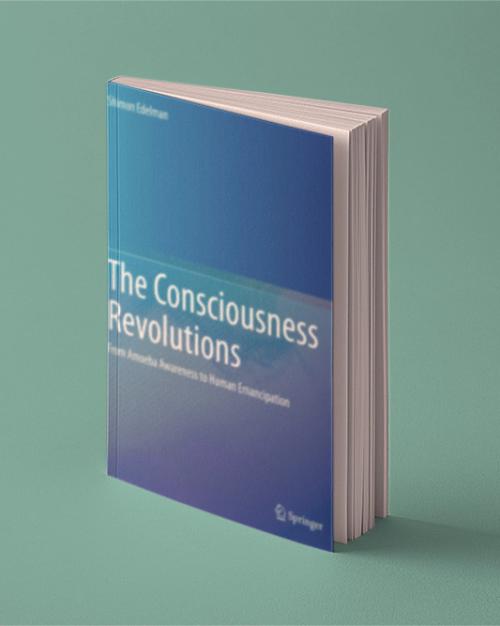In the beginning there wasn’t anything of notice, writes psychologist Shimon Edelman in his new book “The Consciousness Revolutions: From Amoeba Awareness to Human Emancipation.” But as soon as a cell was born, according to Edelman’s view, consciousness came into being. All it took, he says, was a cell membrane to create basic conditions for consciousness: differentiation from the outside world, the power to act upon preferences and care – in this case about self-preservation.
“Single-cell lifeforms have been basically conscious from the get-go,” writes Edelman, professor of psychology in the College of Arts and Sciences. “It did not stop there: built-in capacity for discernment, when validated by caring and backed by memory, is potent magic.”
Edelman traces the evolution of consciousness through the book, from the most basic phenomenal awareness of bacteria to the pleasures and pains of human self-consciousness to artificial intelligence and the political possibilities of social consciousness. He integrates a computational understanding of the nature of consciousness and its ethical implications, building toward a call for a conscious effort to create systemic change in today’s world.
The College of Arts and Sciences spoke with Edelman about the book.
Question: Your account of consciousness taps into philosophy, evolutionary biology, physics, neurobiology and behavior, religion, and computer science, as well as psychology: Why does an inquiry into consciousness require a multi-faceted approach?
Computer science and psychology are there because all aspects and faculties of the mind, including consciousness, are inherently and essentially computational — this is why my course Psych 3140 is titled “Computational Psychology.” Physics and biology are there because the fundamental properties of mind-like or cognitive computations, which have everything to do with the nature of selfhood, are described by the same mathematics as the fundamental properties of living systems — which self-organized out of inert matter and were subsequently shaped by evolution.
Neurobiology and behavior are there because these are the levels of description of the mind which have been long studied and can offer many insights into consciousness (but not into its ultimate nature, which is computational). Religion, or spirituality, is there because it is central to the experience of being human and has been the traditional means of engaging with suffering, and because suffering depends on being conscious at a certain level (one that involves a self). And philosophy is there because it is so very effective at sharpening the important questions faced by the sciences, even if getting good answers to these questions requires one to get out of the proverbial armchair and learn some science.
Q: Why is it important for us humans to consider consciousness and its various stages?
Because becoming conscious of the nature and importance of consciousness reduces the probability of all of us sleepwalking into a species suicide and a mass extinction of myriad of species with which we share a planet; or else of remaining stuck in a statist-capitalist hell where a vast majority of people are doomed to a lifetime of suffering due to poverty, hunger, illness, depression, and violence, all preventable by a conscious effort aimed at a systemic change.
Q: How can consciousness arise in artificial machines and not just living ones?
According to most explicit theories that have been proposed (including the one I’ve developed with several collaborators), consciousness, like all other aspects of the mind, is fundamentally a kind of computation. As such, it can be implemented in different substrates, which do not have to be biological — just like addition can be implemented in an electronic computer or a mechanical one (like an old-fashioned cash register). While it may feel different to be a conscious electronic machine, compared to being a conscious living one, the difference is secondary to what is common to all conscious systems. Depending on the level of consciousness in question, the commonalities include such qualities of experience as the distinction between the self and the rest of the world, positive and negative affect, and self-modeling — all discussed in the book.




